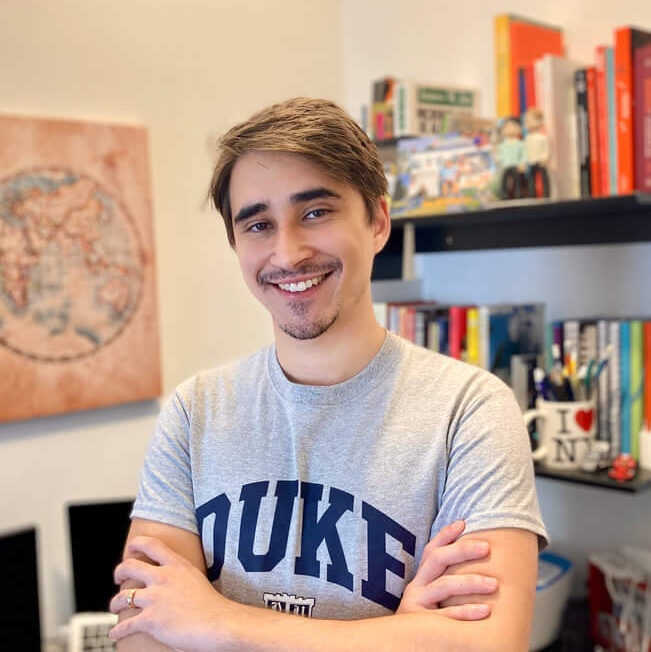Marco (he/him) believes that science and education can change the world, and he is now starting his PhD in Molecular Genetics and Microbiology at Duke University, North Carolina. He is affiliated with the Duke School of Medicine, an interdisciplinary and collaborative environment with a benchmark of scientific discoveries to improve human health. Marco majored in Food Engineering at the Federal University of Viçosa, Brazil, attended the University of Lorraine, France, as an exchange student in Biotechnology, and earned an MSc in Genetics and Molecular Biology from the State University of Campinas, Brazil. His research and teaching interests include biochemistry, bioinformatics, cell biology, and microbiology. Marco has received several national and international merit scholarships, authored four research papers, and collaborated on six other articles and two book chapters. He has also served in various research assistant roles, including undergraduate research assistant, research assistant, and teaching assistant positions. You can follow Marco on Twitter: @MarcoTPGontijo


